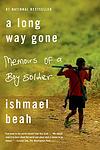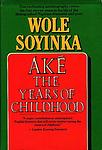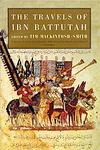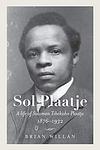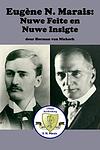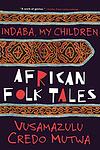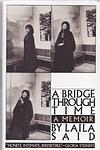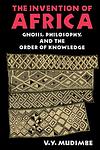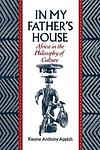Genres
Date Range
Reading Statistics
Click the button below to see how many of these books you've read!
Download
If you're interested in downloading this list as a CSV file for use in a spreadsheet application, you can easily do so by clicking the button below. Please note that to ensure a manageable file size and faster download, the CSV will include details for only the first 500 books.
Download-
1. The Wretched of the Earth by Frantz Fanon
This book is a psychological and political analysis of the dehumanizing effects of colonization upon the individual and the nation. It provides a clear, passionate condemnation of colonialism and its legacy, arguing that violence is a necessary component of decolonization. The author also discusses the challenges that newly independent nations face, including the struggle to establish a national culture and the threat of neocolonialism.
-
2. Long Walk To Freedom by Nelson Mandela
"Long Walk to Freedom" is a powerful autobiography that chronicles the extraordinary life of Nelson Mandela. From his humble beginnings in a rural village to becoming the first black president of South Africa, Mandela's journey is one of resilience, determination, and unwavering commitment to justice and equality. Through his personal experiences, he provides a vivid account of the struggle against apartheid, his 27 years of imprisonment, and the eventual triumph of democracy. This book serves as an inspiring testament to Mandela's unwavering spirit and his lifelong fight for freedom and human rights.
-
3. Down Second Avenue by Es'kia Mphahlele
"Down Second Avenue" is a semi-autobiographical account of a black man's life under apartheid in South Africa. The narrative chronicles the protagonist's journey from childhood to adulthood, detailing his experiences with poverty, discrimination, and the struggle for education. Despite the harsh realities of life under apartheid, the protagonist's resilience and determination shine through, offering a poignant and powerful critique of the socio-political realities of the time.
-
4. The African Child by Camara Laye
"The African Child" is a semi-autobiographical novel that follows the journey of a young boy from his childhood in Guinea to his adolescence. The narrative captures the boy's experiences growing up in a traditional African society, his rites of passage, his relationship with his family, particularly his blacksmith father, and his eventual departure for studies in France. The book provides a vivid portrayal of the rich cultural traditions, beliefs, and values of the Malinke people, while also exploring themes of identity, change, and the tension between tradition and modernity.
-
5. A Long Way Gone: Memoirs of a Boy Soldier by Ishmael Beah
This memoir recounts the harrowing experiences of a young boy forcibly recruited into the Sierra Leonean army during the country's brutal civil war. The narrative follows his journey from an innocent child fascinated with rap music to a hardened child soldier, who is eventually rescued by UNICEF and rehabilitated. The book provides a stark, firsthand account of the horrors of war and the resilience of the human spirit.
-
6. Ake: The Years Of Childhood by Wole Soyinka
"Ake: The Years of Childhood" is a memoir that chronicles the early years of a Nigerian boy growing up in the town of Ake. Set in the 1940s, the book vividly captures the author's experiences, from his close-knit family life to his encounters with colonialism and the struggle for independence. Through his insightful and lyrical prose, the author takes readers on a nostalgic journey filled with rich cultural traditions, humorous anecdotes, and poignant reflections on the complexities of childhood.
-
7. Travels (Ibn Battúta) by Ibn Battúta
The book is a comprehensive travelogue written by a 14th-century Moroccan scholar and explorer who traveled extensively across the known world, from Africa to the Middle East, India, China, and Europe. The author shares his observations and experiences in vivid detail, offering unique insights into the diverse cultures, religions, and societies he encountered during his journeys. His accounts serve as a significant historical record of the world during the Middle Ages, providing a firsthand perspective of life during that period.
-
8. Kaffir Boy by Mark Mathabane
This autobiography tells the story of a young boy growing up in apartheid-era South Africa. Despite enduring extreme poverty, brutal police raids, and constant racial discrimination, the protagonist manages to escape his harsh reality through education and tennis. His determination and resilience eventually lead him to receive a scholarship to an American university, providing him a chance to escape the oppressive system of apartheid.
-
9. Facing Mount Kenya by Jomo Kenyatta
"Facing Mount Kenya" is a comprehensive study of the Kikuyu people, their history, culture, and traditions, written by Jomo Kenyatta, a prominent figure in Kenya's struggle for independence. The book explores various aspects of Kikuyu society, including their political organization, economic activities, social structure, and religious beliefs. Kenyatta's work provides valuable insights into the Kikuyu way of life and offers a critical analysis of the impact of colonialism on their society.
-
10. Native Life In South Africa by Sol Plaatje
"Native Life In South Africa" is a firsthand account of the experiences and struggles of the native African population in South Africa during the early 20th century. The author, Sol Plaatje, provides a powerful and insightful narrative that sheds light on the social, political, and economic injustices faced by the indigenous people under the oppressive system of colonialism. Through his vivid descriptions and personal anecdotes, Plaatje highlights the resilience and determination of the native population in their fight for equality and justice.
-
11. Ghana: The Autobiography Of Kwame Nkrumah by Kwame Nkrumah
This autobiography tells the story of Kwame Nkrumah, the first President of Ghana and a key figure in the country's struggle for independence from British colonial rule. Nkrumah recounts his early life, his education abroad, and his political journey, providing insights into his vision for a united and prosperous Africa. He reflects on the challenges faced during his presidency, including the economic and political obstacles that hindered Ghana's progress. Overall, this book offers a personal account of Nkrumah's life and the pivotal role he played in shaping Ghana's history.
-
12. The Struggle For Mozambique by Eduardo Mondlane
"The Struggle For Mozambique" is a comprehensive account of the liberation struggle in Mozambique, written by Eduardo Mondlane. The book delves into the historical, political, and social context of Mozambique, tracing the country's path from Portuguese colonial rule to its fight for independence. It explores the challenges faced by the Mozambican people, the formation and evolution of the Mozambique Liberation Front (FRELIMO), and the tactics employed in their struggle against oppression. Through vivid storytelling and meticulous research, Mondlane sheds light on the resilience and determination of the Mozambican people in their quest for freedom and self-determination.
-
13. Die Siel Van Die Mier by Eugene Marais
"Die Siel Van Die Mier" by Eugene Marais is a profound exploration of the life and behavior of ants, delving into their intricate social structure and the complex workings of their colonies. Marais's scientific observations are interwoven with philosophical musings, as he contemplates the parallels between ant society and human society, ultimately offering a thought-provoking reflection on the nature of existence and the interconnectedness of all living beings.
-
14. Indaba, My Children by Vusamazulu Credo Mutwa
"Indaba, My Children" is a captivating and enlightening collection of African folklore, myths, and legends, passed down through generations. Through vivid storytelling, the book explores the rich cultural heritage of Africa, delving into topics such as creation stories, ancestral spirits, and the power of dreams. With a blend of wisdom, spirituality, and historical insights, the author invites readers to embark on a journey of discovery, offering a deeper understanding of African traditions and the interconnectedness of all living beings.
-
15. The History Of The Yorubas by Reverend Samuel Johnson
"The History of the Yorubas" is a comprehensive account of the rich cultural heritage and historical development of the Yoruba people, a major ethnic group in Nigeria. Written by Samuel Johnson, the book delves into the origins, traditions, and societal structures of the Yoruba, exploring their religious beliefs, political systems, and significant historical events. Through meticulous research and detailed storytelling, Johnson provides valuable insights into the Yoruba civilization, making this book an essential resource for anyone interested in African history and culture.
-
16. Antériorité Des Civilisations Nègres by Cheikh Anta Diop
"Antériorité Des Civilisations Nègres" by Cheikh Anta Diop explores the history and achievements of African civilizations, challenging the prevailing Eurocentric narrative that downplays the contributions of African cultures. Diop presents a compelling argument for the existence of advanced African civilizations and their impact on world history, drawing on linguistic, archaeological, and anthropological evidence. Through meticulous research, he highlights the intellectual, scientific, and cultural achievements of African societies, ultimately reclaiming their rightful place in the annals of human civilization.
-
17. The Abandoned Baobab by Ken Bugul
The book is a poignant autobiographical novel that delves into the life of a young African woman who feels disconnected from her roots and culture after returning from studies in Europe. Struggling with a sense of alienation and identity crisis, she spirals into a life of excess and despair in the city, seeking solace in relationships and substances. Her narrative is a raw and honest exploration of postcolonial identity, womanhood, and the search for meaning in a world where she feels like an outsider both in her home country and abroad. The title symbolizes her sense of abandonment and the deep longing for a sense of belonging and understanding.
-
18. Unity And Struggle by Amilcar Cabral
"Unity And Struggle" explores the concept of national liberation and the fight against colonialism in Africa. The book delves into the importance of unity among oppressed peoples and the necessity of armed struggle to achieve true independence. Through a combination of historical analysis and personal experiences, the author emphasizes the need for a comprehensive understanding of the social, economic, and political factors that contribute to the liberation struggle. With a passionate call for solidarity and self-determination, "Unity And Struggle" serves as a powerful manifesto for those seeking freedom from oppression.
-
19. A Bridge Through Time by Laila Abou-Saif
"A Bridge Through Time" is a poignant memoir that chronicles the author's life journey, weaving together the rich tapestry of her Egyptian heritage with her experiences in the Western world. The narrative delves into the complexities of identity, culture, and the sense of belonging as the author navigates the challenges of assimilation and the preservation of her roots. Through a series of reflective anecdotes and personal insights, the book offers a unique perspective on the universal quest for self-discovery and the reconciliation of disparate worlds, ultimately serving as a metaphorical bridge connecting the past with the present.
-
20. Treatise Of Zera Yacob by Zera Yacob
The "Treatise of Zera Yacob" is a philosophical work from the 17th century, written by an Ethiopian philosopher during a period of self-imposed exile. The treatise presents a profound discourse on the nature of God, the pursuit of knowledge, and the application of reason and natural law in determining ethical truths. The author critiques various religious beliefs and practices, advocating for a rational approach to understanding the universe and the divine. His arguments emphasize the importance of personal inquiry and the critical examination of tradition and authority, making it a pioneering work in the field of philosophical rationalism within an African context.
-
21. Dumba Nengue, Run For Your Life by Lina Magaia
The book is a harrowing account of the Mozambican people's suffering during the civil war that followed the country's independence from Portugal. It compiles testimonies and personal stories that reveal the atrocities committed by the Renamo guerrillas, who were backed by foreign powers. Through the eyes of the survivors, the narrative exposes the brutalities of war, including the destruction of villages, the murder of innocent civilians, and the resilience of those who were forced to flee their homes. The work serves as both a poignant reminder of the cost of conflict and a tribute to the spirit of the Mozambican people who endured and survived amidst such terror.
-
22. Male Daughters, Female Husbands by Ifi Amadiume
"Male Daughters, Female Husbands" is an anthropological exploration of gender roles and power dynamics within the Igbo society of Nigeria. The book challenges traditional Western notions of gender and sexuality, focusing on the concept of "female husbands" - women who assume the roles and responsibilities typically associated with men. Through extensive research and personal narratives, the author examines the historical and cultural context of these gender roles, shedding light on the complex intersections of gender, power, and identity in Igbo society.
-
23. The Invention Of Africa by V.Y. Mudimbe
"The Invention of Africa" explores the construction and representation of Africa as a continent and its people through the lens of Western knowledge and power. V.Y. Mudimbe critically examines the historical, cultural, and political processes that have shaped Africa's image, challenging the dominant narratives and highlighting the complexities and diversity of African identities. Through an interdisciplinary approach, Mudimbe deconstructs the Eurocentric gaze and invites readers to rethink their understanding of Africa and its place in the global context.
-
24. Nuptials by Albert Camus
"Nuptials" is a lyrical essay collection that delves into the author's profound reflections on the Mediterranean landscape and the joy of living. Through vivid and evocative prose, the essays explore the author's sensory experiences and emotional responses to the sun, sea, and nature of Algiers and its surroundings. The work celebrates the physical beauty of the world, the intense pleasures of the body, and the connection between the individual and the natural environment, all while contemplating the themes of existence, happiness, and mortality. The author's meditations on the simple yet profound aspects of life offer a philosophical perspective on the human condition and the search for meaning within the splendor of the natural world.
-
25. In My Father's House by Anthony Appiah
"In My Father's House" by Anthony Appiah is a thought-provoking exploration of the complexities of African identity and the concept of cultural authenticity in a globalized world. Through personal anecdotes, historical analysis, and philosophical reflections, the author challenges essentialist notions of African culture, arguing for a more fluid understanding that embraces the diverse influences and hybridity of modern African societies. Appiah's nuanced perspective sheds light on the intricate interplay between tradition and modernity, and invites readers to question and redefine their own cultural identities.
Reading Statistics
Click the button below to see how many of these books you've read!
Download
If you're interested in downloading this list as a CSV file for use in a spreadsheet application, you can easily do so by clicking the button below. Please note that to ensure a manageable file size and faster download, the CSV will include details for only the first 500 books.
Download



